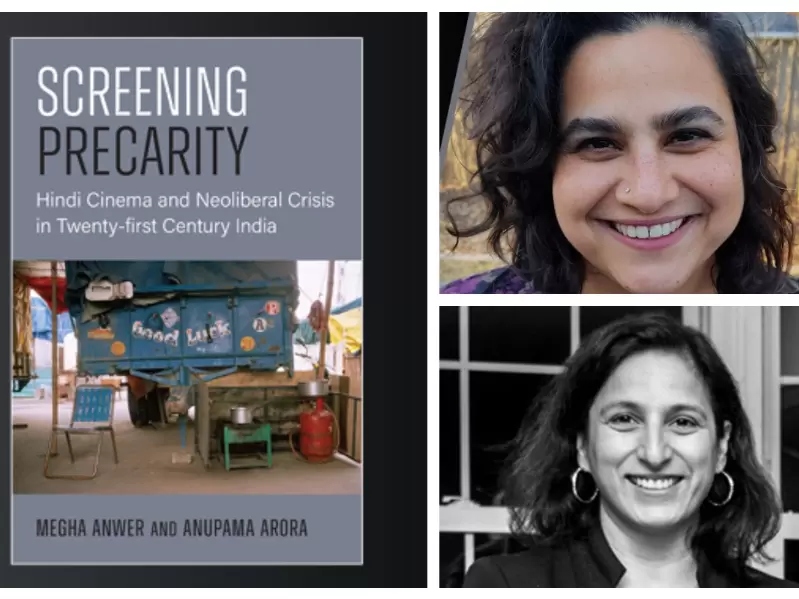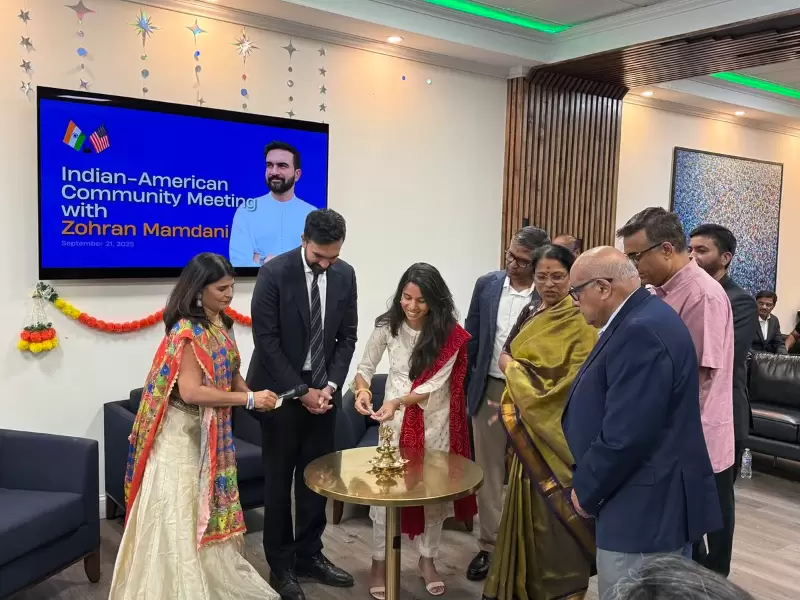‘Screening Precarity’: New book analyzes insecurity in contemporary Hindi cinema
The book, co authored by Indian origin professors in the US, explores how 21st century Bollywood films depict insecurity and shifting politics in India.
 Clockwise- Book cover, Megha Anwer and Anupama Arora / University of Purdue and University of Massachusetts, Dartmouth,
Clockwise- Book cover, Megha Anwer and Anupama Arora / University of Purdue and University of Massachusetts, Dartmouth,
Two Indian origin professors, Megha Anwer and Anupama Arora, have co-authored a new book examining the intersections of Hindi cinema, neoliberalism, and contemporary Indian society.
Titled ‘Screening Precarity: Hindi Cinema and Neoliberal Crisis in Twenty-First Century India’, the book was published in September 2025 by the University of Michigan Press.
Anwer, clinical associate professor and associate dean for research in the John Martinson Honors College at Purdue University and a Delhi University alumna, collaborated with Arora, Jawaharlal Nehru University alumna and professor of English and Communication at the University of Massachusetts Dartmouth, on the project.
ALSO READ: Kiran Desai shortlisted for 2025 Booker Prize
The study looks at how Bollywood films since 2010 reflect and shape public understanding of precarity—defined as the widespread condition of professional and personal insecurity in neoliberal economies. It analyzes 19 films to argue that Hindi cinema has become a terrain where India’s transition from the optimism of 1990s liberalization to the disillusionment of recent years is vividly recorded.
According to the authors, this cinematic shift documents both the inadequacies of neoliberal promises and the growing appeal of authoritarian politics. The book describes this period as one where India’s “precarious public sphere” is on display through stories of instability and uncertainty that resonate across audiences.
The publisher notes that ‘Screening Precarity’ combines insights from film and media studies, cultural studies, gender studies, and South Asian studies. It highlights the politics of representation, especially how marginal identities are portrayed when neoliberal and authoritarian frameworks intersect.
The book also situates Hindi cinema as part of global media networks, linking state power, star power, national histories, and transnational fantasies. Through this lens, Bollywood becomes both a cultural product and a political archive of a society confronting insecurity, violence, and limited avenues for collective action.
Anwer’s research focuses on urban studies, critical race studies, feminist and postcolonial theory, and the study of violence in global contexts. At Purdue, she has been recognized with multiple teaching awards, including the Exceptional Early Career Teaching Award and the Pillar Award for Student Leadership Development.
With ‘Screening Precarity’, Anwer and Arora aim to show how film functions not only as entertainment but also as a record of India’s contemporary struggles with neoliberalism and its consequences.




 Pranavi Sharma
Pranavi Sharma
















Comments
Start the conversation
Become a member of New India Abroad to start commenting.
Sign Up Now
Already have an account? Login